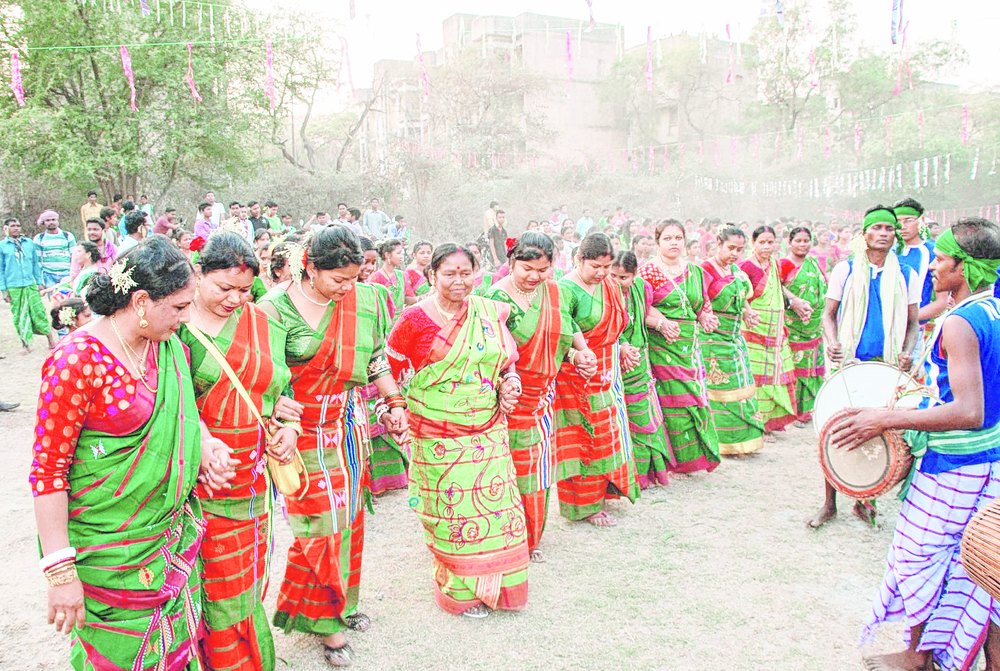
Age no bar, tribal women in traditional green saris match steps with the infectious beat drummed up by the men at the Baha dance at Jahersthan in Sidhgora on Friday. Picture by Bhola Prasad
From teenage girls to their grandmas, tribal women of all ages matched step for vibrant step at the Baha dance on Friday, part of the Santhal festival that started on Thursday.
Santhal Gawnta, a tribal group in the city, celebrated Day Two of Baha celebrations on Friday at Jahersthan, the worshipping place of Santhals, in Sidhgora.
Baha celebrations among Santhals wish for a fruitful year and a better harvest.
Devotees offered the season's fruits and flowers to the gods on Friday. Having stopped using nature's bounty as a mark of respect towards 'the perennial giver' for a few weeks, the community will again use nature's bounty from Saturday onwards.
'Baha worship celebrates and respects nature. Don't we get everything from nature, including flower, fruits and vegetables? Personally, I have been performing Baha rituals for the past 35 years,' said Jhano Mardi, a 60-year-old devotee.
Celebrations traditionally start five days after the new moon has been sighted.
True to tradition again, the community spent the first day, this time, on Thursday, spring-cleaning. The Jahersthan and their households were scrupulously cleaned.
The second day, Friday, is for devotees to perform rituals such as offering fruits and flowers to their deities. Women performed the Baha dance.
On the third day, they play a colourless Holi by sprinkling water on each other.
'Baha signifies the advent of Holi. Though it starts after five days of the new moon, the celebration within communities can start anytime after that till the full moon day on Holi. The community, which takes part in the rituals, is allowed to consume fruits. The village, which has not performed the Baha rituals, will not even come near us,' said Kushal Hansda, a participant.
Women in green traditional Santhali cotton saris had also put flowers in their hair. The rituals remain incomplete without the Baha and Sakhua flower that the community gets from the priest.
The priest, who's known as Bonga, will also visit every household to purify it with water used in the ritual.










